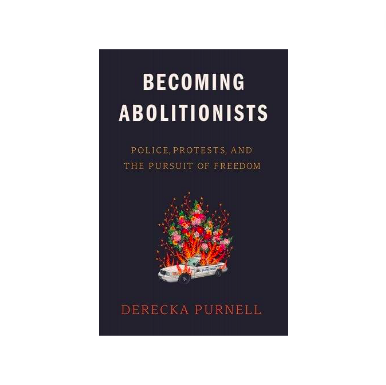About the Author:
Derecka Purnell is a human rights lawyer, writer, and organizer. She received her JD from Harvard Law School, and works to end police and prison violence by providing legal assistance, research, and training to community-based organizations through an abolitionist framework. Her work and writing has been featured in The New York Times, NPR, The Atlantic, Boston Review, Harper's Bazaar, Cosmopolitan, The Appeal, Truthout, Slate, and many other publications. Derecka is currently a columnist at The Guardian, a Margaret Burroughs Fellow for the Social Justice Initiative's Portal Project at the University of Illinois-Chicago, and a Scholar-in-Residence at Columbia Law School.








